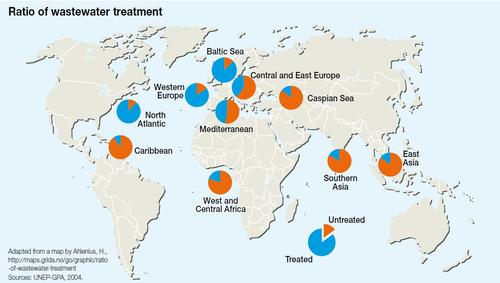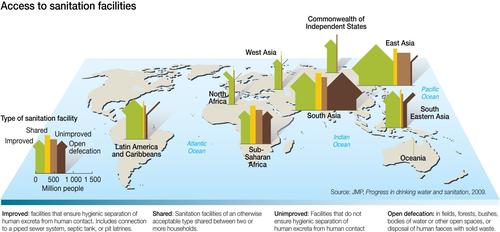Wastewater treatment/sanitation
The world is facing a global water quality crisis. Continuing population growth and urbanization, rapid industralization, and expanding and intensifying food production are all putting pressure on water resources and increasing the unregulated or illegal discharge of contaminated water within and beyond national borders. This presents a global threat to human health and wellbeing, with both immediate and long-term consequences for efforts to reduce poverty whilst sustaining the integrity of some of our most productive ecosystems.
Wastewater – spent or used water from farms, communities, villages, homes, urban areas or industry may contain harmful dissolved or suspended matter. Unregulated discharge of wastewater undermines biological diversity, natural resilience and the capacity of the planet to provide fundamental ecosystem services, affecting both rural and urban populations and affecting sectors from health to industry, agriculture, fisheries and tourism. An estimated 90% of all wastewater in developing countries is discharged untreated directly into rivers, lakes or the oceans.
The poor are affected first and foremost by this global crisis. People suffering from water related diseases occupy over half of the world’s hospital beds. Diarrheal diseases make up over four per cent of the global disease burden, 90% of these are linked to environmental pollution, a lack of access to safe drinking water and sanitation. Comprehensive and sustained wastewater management in combination with sanitation and hygiene is crucial to achieve good health, food security, economic development and jobs. In terms of public spending on health issues, investing in improved wastewater management and the supply of safe water provides particularly high returns. Improved sanitation and wastewater management are central to poverty reduction and improved human health.
(Corcoran et al. 2010)




